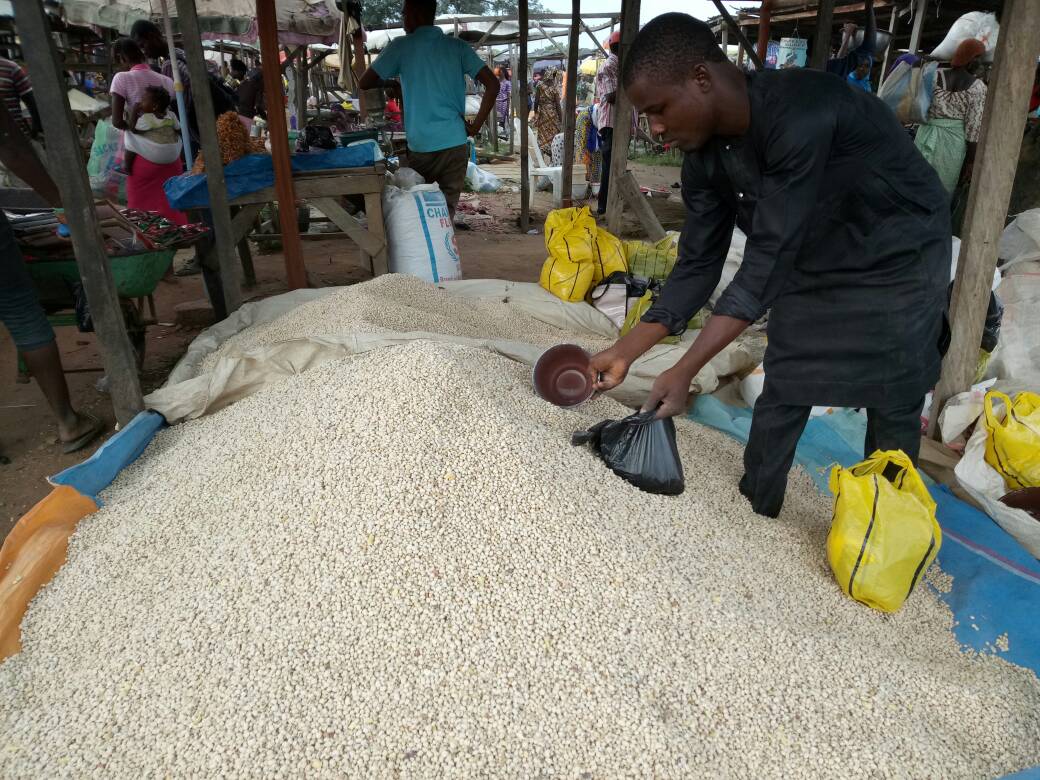
As Nigeria prepares to commercialize Bt cowpea next year, the GMO crop promises such tangible benefits as improved nutrition, reduced pesticide use, new farm jobs and significant cost savings.
Cowpea (vigna unguiculata L.Walp) commonly referred to as beans is an annual herbaceous legume considered the most important indigenous African food grain legumes due to its ability to grow in drought-prone areas.
Cowpea is also critical as a source of very cheap protein. It is popularly called poor man s meat because those who cannot afford animal protein can make do with cowpea. That is why it is so important in the traditional diet of Nigerians, who over the years have developed different recipes, such as moi moi, dawaki and akara, based on cowpea.
Nigeria is the largest producer and consumer of cowpea in the world with a national average yield of about 669 pounds per acre, or 750 kilograms per hectare. However, the nation consumes around 3.6 million tons annually, which requires imports of over 500,000 tons valued at $N20 billion per year.
The nation s production deficit can be attributed to many factors, including drought, disease and insect damage, especially by the pod-borer Maruca vitrata. Severe infestation of the pest can cause yield losses of about 80 percent. In a desperate bid to control the insect, farmers are forced to use heavy applications of insecticides, which are not only expensive, and thus out of reach of many poor farmers, but also harmful to humans, the environment and beneficial insects.
Why genetic engineering?
Researchers have tried to develop cowpea resistant to the pod-borer pest through conventional breeding methods an exercise that met no success. In response, they opted for gene editing (also known as genetic engineering) and introduced a Bacillus thuringiensis (Bt) gene into cowpea. The naturally occurring soil bacterium, which is used as a pesticide in organic farming, confers resistance to the pod of the improved cowpea varieties.
In an exclusive interview with the Alliance for Science, Mahammad Ishiyaku, principal investigator of the Pod Borer Resistant (PBR) Cowpea Project in Nigeria, said researchers in Nigeria had tried all the normal conventional approaches for improving cowpeas. He pointed out that they had developed new varieties with different characteristics, such as a shorter maturation time, but were unable to develop cowpea resistant to Maruca.
So we had to use a modern scientific technique it is called genetic modification to develop this new material and now it confers 100 percent protection against the insect in the field, he said. This means that instead of spraying between six to eight times while growing cowpea in order to get good yield, with only about two sprays the farmer can get as much yield.
Economic, environmental benefits
The financial advantages are substantial for farmers growing pod-borer resistant (PBR) cowpea, Ishiyaku noted. The economic benefits include reduction of insecticide spray requirement from six-to-eight liters per hectare to just two-to-three liters per hectare. With insecticide costing $N1200 per liter, that results in a reduction of about $N5400 in production cost per hectare planted with PBR cowpea. If just 1 million of the 3 million hectares in cowpea are planted with the PBR variety, the savings in the cost of insecticide is $N16.2 billion annually, while economic benefits of a 20 percent yield increase per hectare translates to $N48 billion annually.
Ishiyaku also highlighted the environmental and human benefits stemming from such a significant reduction in the use of insecticide, resulting in a healthier and more productive farming population.
The way forward
Nigeria is currently in the last phase of its PBR experiment, conducting multi-locational field trials in the states of Kaduna, Kano and Zamfara. In these trials, farmers grow the genetically modified crop to confirm that the disease-resistant traits are adequately expressed in typical agricultural settings.
Once the field trials are concluded, future plans for the Bt cowpea include deregulation, nomination for release and seed multiplication so the crop can be accessible to farmers by 2018.
Ultimately, Bt cowpea promises to help improve nutrition among poor Nigerians who cannot afford animal protein. It can also help protect the environment by reducing intensive applications of insecticides, which also saves the nation significant money now being spent on the importation of pesticides. More productive cowpea cultivation could also create farm employment opportunities for the unemployed youth, which would in turn further boost output for farmers and reduce capital flight on the importation of cowpea.
Nkechi Isaac is a Nigerian journalist and a 2016 Cornell Alliance for Science Global Leadership Fellow.
